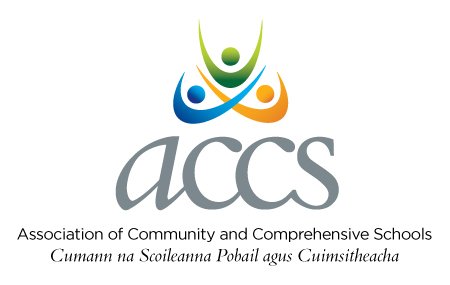Responsibilities of a Board of Management
Last updated: 16th February 2023
The responsibilities of the Board of Management of a Community School are detailed in the Deed of Trust, First Schedule-Instrument of Management and Second Schedule-Articles of Management
These responsibilities are further modified and/or enhanced by the Education Act, 1998 and subsequent legislation. It is important to note that, in the event of any conflict, legislative requirements will take precedence over the Deed of Trust.
General Responsibilities
The Board is responsible for the government and direction of the School, subject to the provisions of the First and Second Schedule of the Deed of Trust and the provisions of the Education Act, 1998, and in accordance with the stated purpose of the School which is to provide a comprehensive system of post-primary education open to all the children of the community, combining instruction in academic and practical subjects and on-going education for persons living in the area served by the school, and generally for contributing towards the spiritual, moral, mental and physical well-being and development of the said Community. ACCS has published a document entitled Risk Management in Community and Comprehensive Schools - Good Governance Guide in cooperation with the DES and the State Claims Agency. This publication sets out a template which can guide Community and Comprehensive schools to comply with the principle of best practice in governance and the application of risk management.
Specific Responsibilities - Deed of Trust
In accordance with the provisions of the Second Schedule-Articles of Management, the Board has specific responsibility for the following.
The Finances of the School
Premises and Equipment
Selection and Appointment of Staff
Organisation and Curriculum
Returns and Reports to the Minister
Specific Responsibilities and Rights - Education Act, 1998.
The provisions of the Education Act, 1998 specify, inter alia, the rights and responsibilities of School Boards, including the following.
A Board ... shall fulfil in respect of the school the functions assigned to that school by the Act, and ... each Board shall be a body corporate with perpetual succession and power to sue and may be sued in its corporate name.
No action shall lie against a member of a Board in respect of anything done by that member in good faith and in pursuance of the Act or any regulations made by the Minister under the Act.
The Board shall publish the policy of the school concerning admission to and participation in the school, including the policy of the school relating to the expulsion and suspension of students.
The Board shall also publish its policy concerning the admission to, and participation in the school by students with disabilities or who have other special educational needs, and shall ensure that, as regards that policy, principles of equality and the right of parents to send their children to a school of the parents' choice are respected.
It should be noted that a school admission policy must conform to The Education (Admission to Schools) Act, 2018 which is available on the Oireachtas website.
The Board should be aware that all of its decisions in relation to the admission of pupils to the school, and the suspension or expulsion of pupils from the school are subject to appeal to the Secretary General of the Department of Education and Skills in accordance with Section 29 of the Education Act (DES CL M 48/01).
The School Plan
The Board shall make arrangements for the preparation of a School Plan, shall ensure that the plan is regularly reviewed and updated and shall make arrangements for the circulation of copies of the Plan to the trustees, parents, teachers and other staff of the School.
The development of a School Plan should involve the collaborative effort of all the school partners. While the leadership role of the Principal is central to the process of school development planning, the involvement of the entire in-school management team, the Board of Management and the Trustees is most important in the management and co-ordination of the process.
A School Plan will normally be composed of two major elements:
a statement of the school's self-review, overall mission and goals;
a systematic description of strategies for further development.
The Department of Education and Skills has established the Professional Development Service for Teachers (PDST) which offers school support and professional development for teachers. Support is provided regionally by multi-disciplinary teams who work closely with the Education Centre Network. This body is a full time resource unit to support all second level schools in school development planning through a number of actions, including the issuing of Guidelines, the provision of Facilitators and the organisation of Regional Seminars.
The Board shall establish procedures for informing the parents of students in the school of matters relating to the operation and performance of the school. This may include an annual report on the achievement of objectives as set out in the School Plan.
The Board must be cognisant of the curriculum for recognised schools as may be prescribed by the Minister for Education and Skills from time to time. The Board will need to be aware of the prescribed subjects, the syllabus for each subject, the amount of instruction time to be allotted to each subject and the guidance and counselling provision to be offered within the school.

